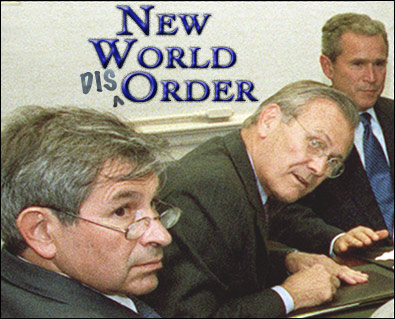|
|
 The World Bank's carbon-offset deals have produced meager results for greenhouse emissions cuts, a fact that has trust fund contributors scrambling for carbon credits before the first Kyoto Protocol commitment period expires in 2012. Donors that are worried about keeping their promises to reduce emissions have, with the help of the World Bank, shifted a portion of their money to "low hanging fruit" -- projects that yield cheap, easy and abundant emissions. But the bumper crop of cut-rate emissions reductions is undercutting the competitiveness of renewable energy and small-scale projects, which are already more expensive and pose higher investment risks.
The World Bank's carbon-offset deals have produced meager results for greenhouse emissions cuts, a fact that has trust fund contributors scrambling for carbon credits before the first Kyoto Protocol commitment period expires in 2012. Donors that are worried about keeping their promises to reduce emissions have, with the help of the World Bank, shifted a portion of their money to "low hanging fruit" -- projects that yield cheap, easy and abundant emissions. But the bumper crop of cut-rate emissions reductions is undercutting the competitiveness of renewable energy and small-scale projects, which are already more expensive and pose higher investment risks.
The World Bank's plan to use its existing carbon-offset portfolio as the model from which to scale up to a "low carbon" economy should sound alarms for anyone seriously concerned about avoiding climate chaos. The Bank's foray into the carbon market paves the way for business-as-usual, while short-changing clean, renewable energy, the poor, and ultimately the climate. The Bank, on the other hand, stands to gain enormously
|

TAKING STOCK OF THE WAR ON TERROR

| |
Wolfowitz, Rumsfeld, and Bush at a crucial Pentagon meeting, September 12, 2001
|
|
 Any attempt to "take stock of the War on Terror" must begin with the sad fact that the story of that war has largely become the story of the war in Iraq as well, and the story of the Iraq War (all discussion of the so-called Surge aside) has been pretty much an unmitigated disaster for U.S. security and for the United States position in the Middle East and the world. Which means that telling the story of the War on Terror, a half dozen years on -- and "taking stock" of that War -- merges inevitably with the sad tale of how that so-called war, strange and multiform beast that it is, became subsumed in a bold and utterly incompetent attempt to occupy and remake a major Arab country.
Any attempt to "take stock of the War on Terror" must begin with the sad fact that the story of that war has largely become the story of the war in Iraq as well, and the story of the Iraq War (all discussion of the so-called Surge aside) has been pretty much an unmitigated disaster for U.S. security and for the United States position in the Middle East and the world. Which means that telling the story of the War on Terror, a half dozen years on -- and "taking stock" of that War -- merges inevitably with the sad tale of how that so-called war, strange and multiform beast that it is, became subsumed in a bold and utterly incompetent attempt to occupy and remake a major Arab country.
That broader story comes down to a matter of two strategies and two generals: General Osama bin Laden and General George W. Bush. Why did General George W. Bush do it? Lacking in legitimacy and on the political defensive, the President and his administration moved instantly to transform the War on Terror into an ideological crusade, one implicitly crafted as a New Cold War. "They hate our freedoms," Bush told Congress and the nation a few days after the 9/11 attacks.
In September 2001, the United States faced a grave threat. The attacks that have become synonymous with that date were unprecedented in their destructiveness, in their lethality, in the pure apocalyptic shock of their spectacle. But in their aftermath, American policymakers, partly through ideological blindness and preening exaggeration of American power, partly through blindness brought about by political opportunism, made decisions that led to a defeat only their own actions -- that only American power itself -- could have brought about.
|
|
|
|
|
|
6 year prosecution of charity ended in deadlock jury, but U.S. vows to retry
 | |
Who really killed Martin Luther King Jr?
|
Questions continue to linger about the government's involvement
Also aims to make climate change a major election year issue
488 killed and over 900 wounded as Mahdi Army wakes up
Former chief war crimes prosecutor alleges some 300 Serbs abducted and killed for organ trafficking in 1999
Trafficking of wildlife in Mexico is threatening to drive many species to extinction
Bishop sees no problem with taking $$ as long as traffickers also seeking spiritual guidance from priests
New group seeks two-state solution
Simulated attack on area packed with factories using hazardous chemicals
Wants all Muslims banned from Israel
Forcing inspectors to require restaurants comply with Passover "law"
Asian nations that paid fair wage expect to lose U.S. trade to sweatshop havens like China and Vietnam
Soaring temperatures, locust invasions and forest fires
'Child porno' widely available, even sold in megastores
Africa alone lost $607 billion - 5x the amount it has received in development aid
Like the next president, his career will mostly involve cleaning up his predecessor's mess
|
|






